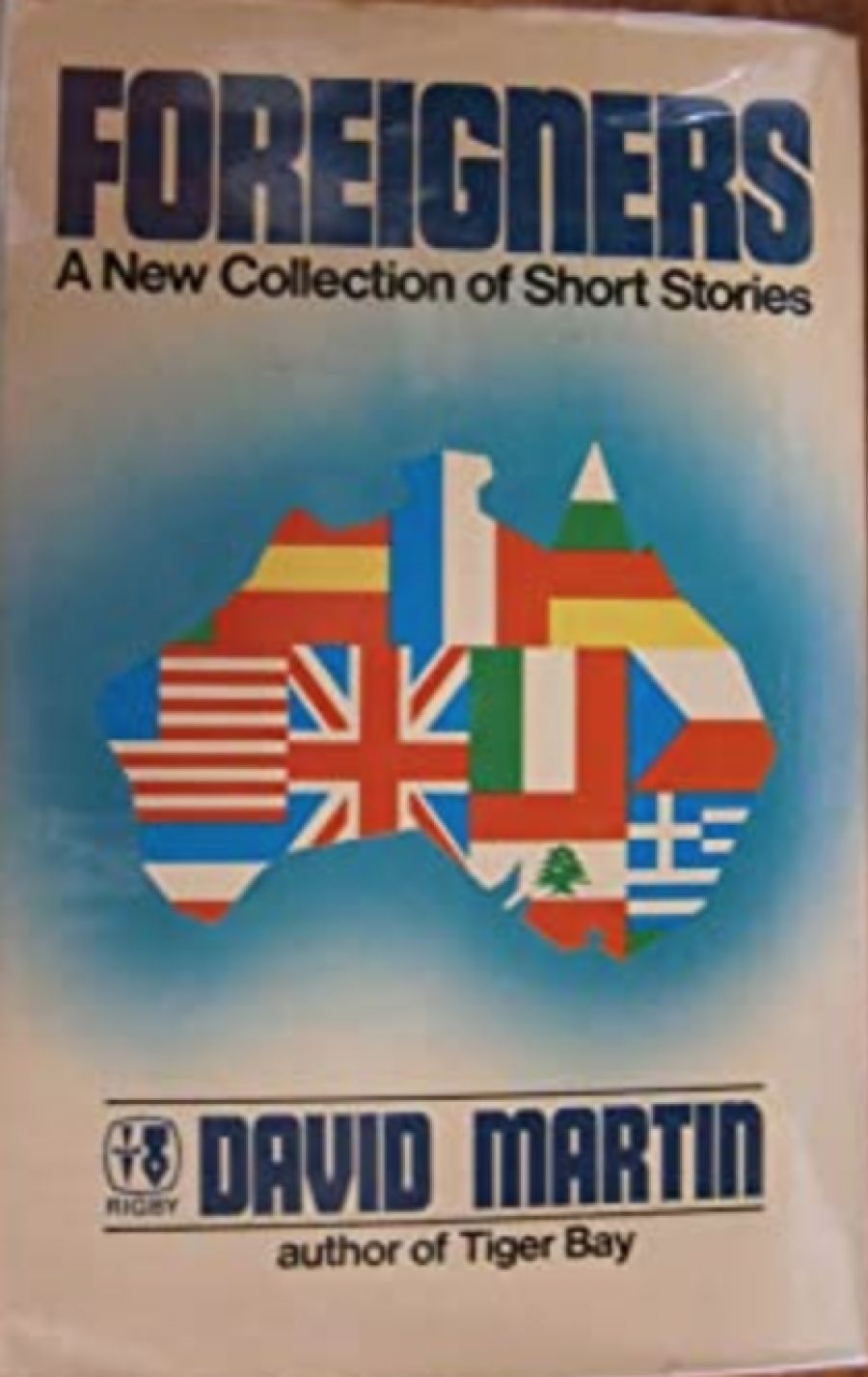
- Free Article: No
- Contents Category: Short Stories
- Review Article: Yes
- Online Only: No
- Custom Highlight Text:
The novelist’s art is wide ranging; he is concerned with a multitude of things that comprise the fabric of his book. The short story writer, however, is concerned with one thing that implies many, since singularity and intensity are the essence of his art. The best short story writers depend on a marked personal attitude and this is the distinguishing characteristic of David Martin’s second collection of stories whose common denominator is his compassionate understanding of the problems of New Australians.
- Book 1 Title: Foreigners
- Book 1 Subtitle: A new collection of short stories
- Book 1 Biblio: Rigby, 455 pp, $7.95
And since the remarkable influx of people of so many races into Australia in the last thrity-five years has led to the formation of so many cultural islands; to the creation of barriers between Australian educated children and their parents clinging desperately to old traditions; to tragedies of failure and rejection far outnumbering the more publicised success stories; to the exacerbation of cultural differences between migrants and natives; David Martin’s stories on these and other themes remind us of the literary phenomenon that the genre of the short story seems to flourish in societies that are unformed or in a state of crisis, drift, and fragmentation. Hence the pre-eminence of Italian, Russian, American, Irish and, indeed, of New Zealand and Australian writers in this category.
In one of Martin’s stories, ‘The Price of Land’, a character observes that ‘you’d have to be blind in both eyes not to see the stories that swayed on every bush like spiders’ webs’. There is no problem with this author’s vision. His range is remarkable; his observation, uncanny. This, again, is true of David Martin’s storytelling technique.
A Lebanese prisoner (‘Anyone Can Love Anyone’) has a frustrated passion for a girl he sees while on an outside working party; an elderly Croatian soccer fan (‘Who Says A Must Say B’) finds disturbing complications in his partisanship; language and social differences (‘Jesus in the Market’) embarrass a Spanish New Australian when he brings out his elderly parents to join his family.
David Martin’s fault, in a few of his stories, is that he overdoes the episodic (admittedly a justifiable technique in short story writing) and leaves ends irritatingly untied. But most of them are quite absorbing, none more so than ‘Screws’ (a powerful story of an Australian wife’s desperate efforts to track down the anonymous vilifier of her German husband) and ‘Excrement’ (about the persecution of a Turkish schoolboy by his fellows). The latter story has a kinship with Judah Waten’s ‘The Knife’, and it is worth noting that these two writers probably most of all in our contemporary literature have tackled head on the problem of migrant assimilation into our community. Their frankness and perceptiveness have done much, I believe, to help promote more enlightened, even humane attitudes towards this problem.


Comments powered by CComment